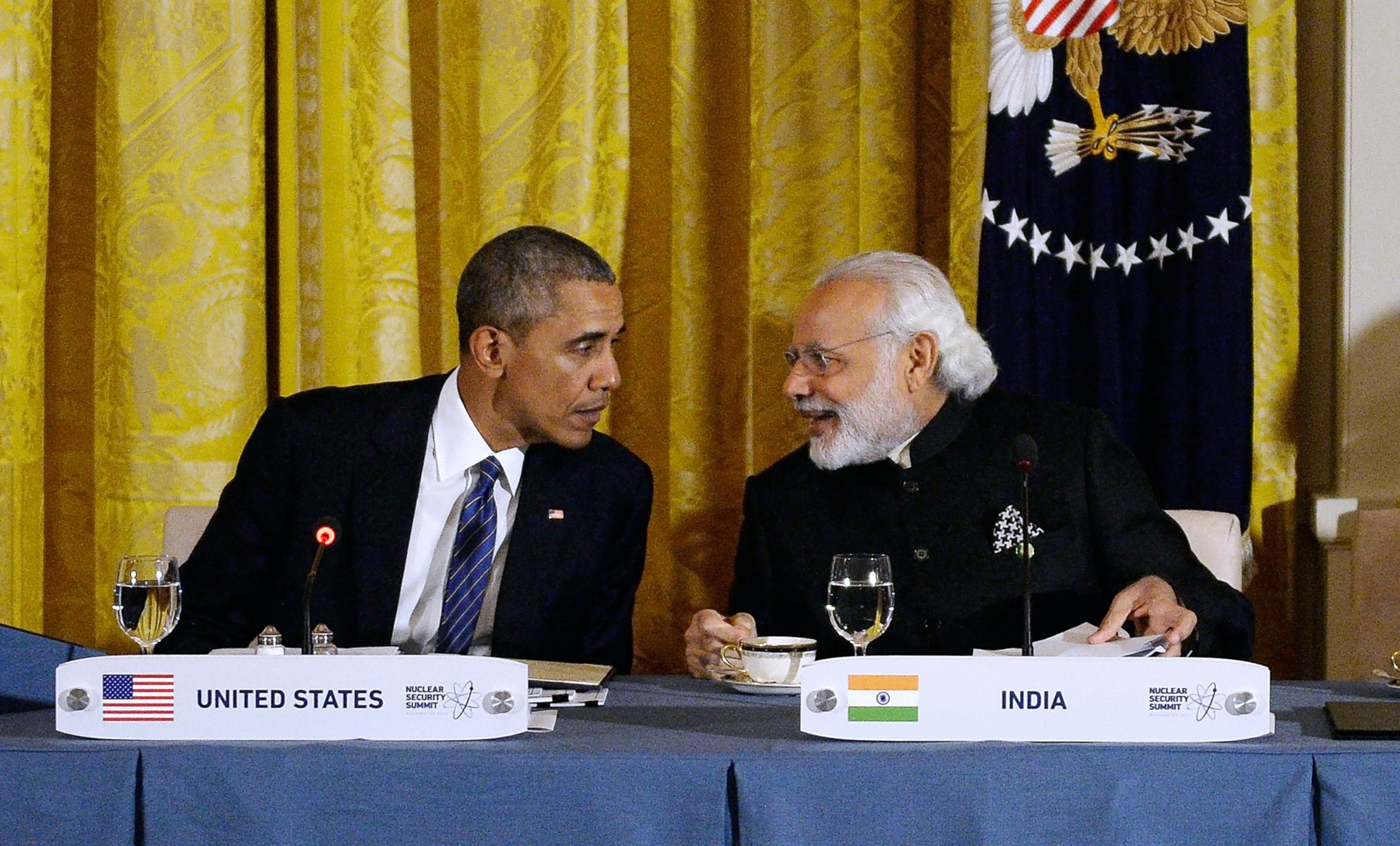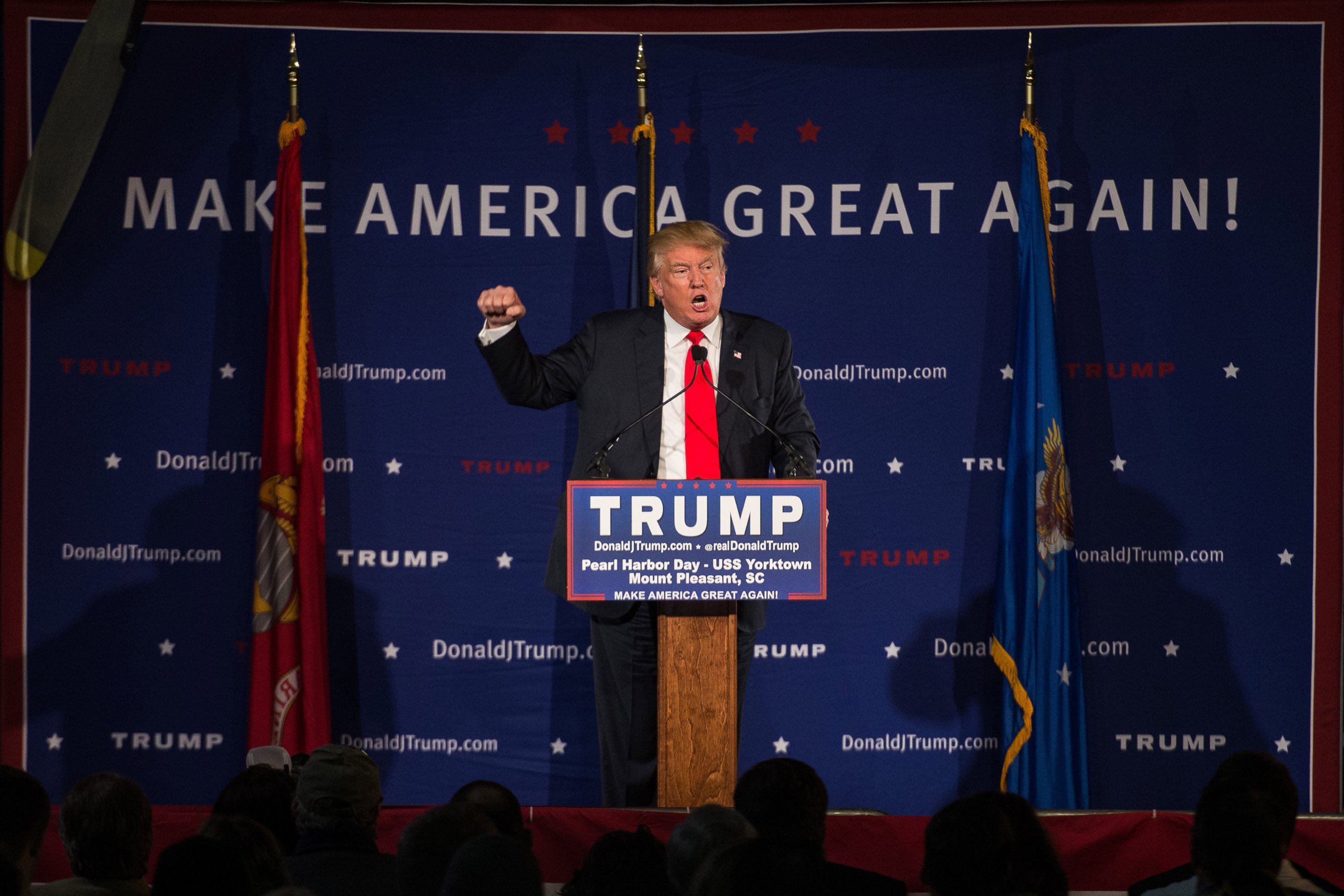Hard-line Indian Hindu Group Prayerfully Endorses Donald Trump
The Indian nationalist group even staged a ceremony to bring him good tidings.
— -- The Hindu Sena, a reactionary Hindu nationalist political organization in India, has endorsed U.S. presidential candidate Donald Trump for his strong stance against what the group called “Islamic terror.”
The endorsement ceremony, which took place today in Delhi through scorching heat that exceeded 100 degrees, featured a small fire surrounded by photographs of the presumptive Republican nominee adorned with dots made with red kumkuma powder, a substance commonly used in religious ceremonies as a blessing.

An image of Hanuman, a Hindu god typically associated with the virtues of strength and endurance, was positioned in between iconography of Trump. Posters were hung broadcasting the phrase “We Love Trump,” and a news release issued by the group celebrated Trump’s “brave heart” in fighting the “evil” of Islamic terror.
“Donald Trump will break the back of Islamic terror,” Vishnu Gupta, the president of Hindu Sena, told the Indian news website Scroll. “Bombs are falling everywhere, in Iran, Iraq. Even India is suffering from Islamic terror.”
The Hindu Sena represents just one small group of a larger network of Hindu nationalist organizations in India that are vocal critics of Islamic terrorism, but is the first known group to endorse a 2016 candidate in the U.S. race for president.
Trump’s staunch anti-terror rhetoric, including his controversial proposal to temporarily ban Muslims from entering the United States, represents the kind of language that might be attractive to India’s hardliners, who have stirred controversy in the country by banning beef production in Maharashtra, forcing conversions to Hinduism and allegedly instigating violence against the country’s estimated 172 million Muslims, a little less than 15 percent of the country’s population.

Narendra Modi, India’s prime minister, is a member of the conservative Bharatiya Janata Party, and has a tumultuous relationship with India’s Muslim population in his own right. He served as chief minister of the state of Gujarat in 2002 when Hindu mobs committed acts of “unspeakable savagery” against the region’s Muslims, claiming over 1,000 lives and displacing close to 150,000 residents.
Critics, including the international non-governmental organization Human Rights Watch, have long accused Modi, who’s Hindu, of doing too little to stop the violence, or to offer consolation in its aftermath.
Modi himself has no direct association with the Hindu Sena.
In an incident that draws a notable parallel to Trump’s proposed ban on Muslims, Modi was banned from entering the United States in 2005 for his perceived role in the 2002 Gujarat riots. The United States warmed its relationship to Modi in 2014 after he was elected prime minister, and he eventually visited the country last September.



